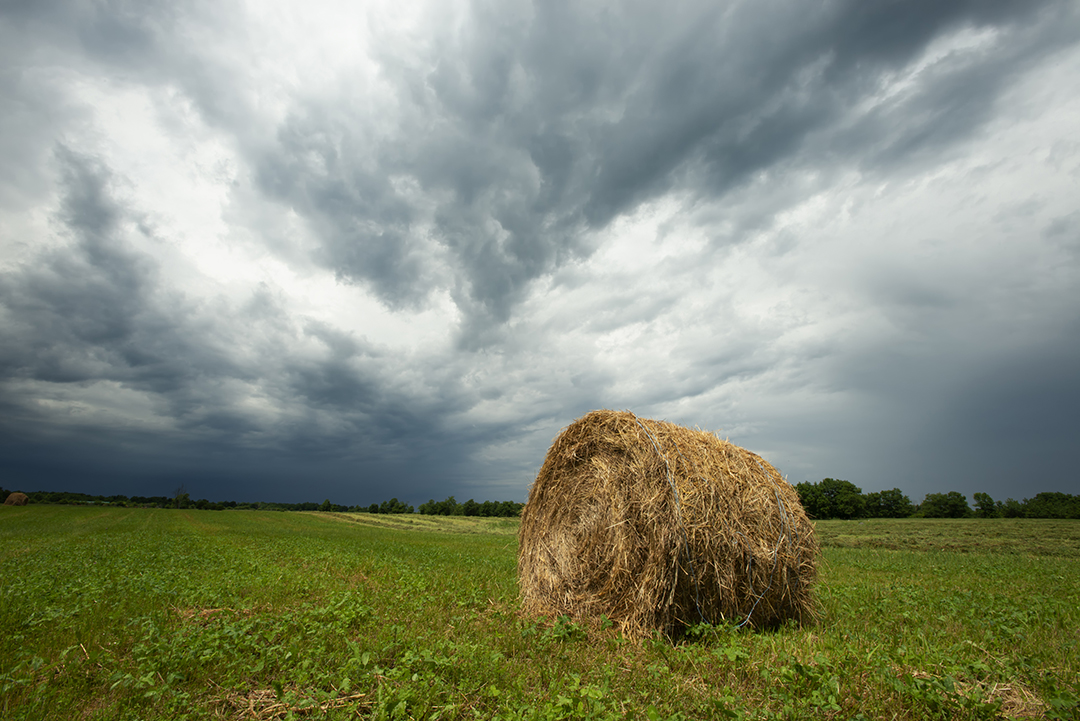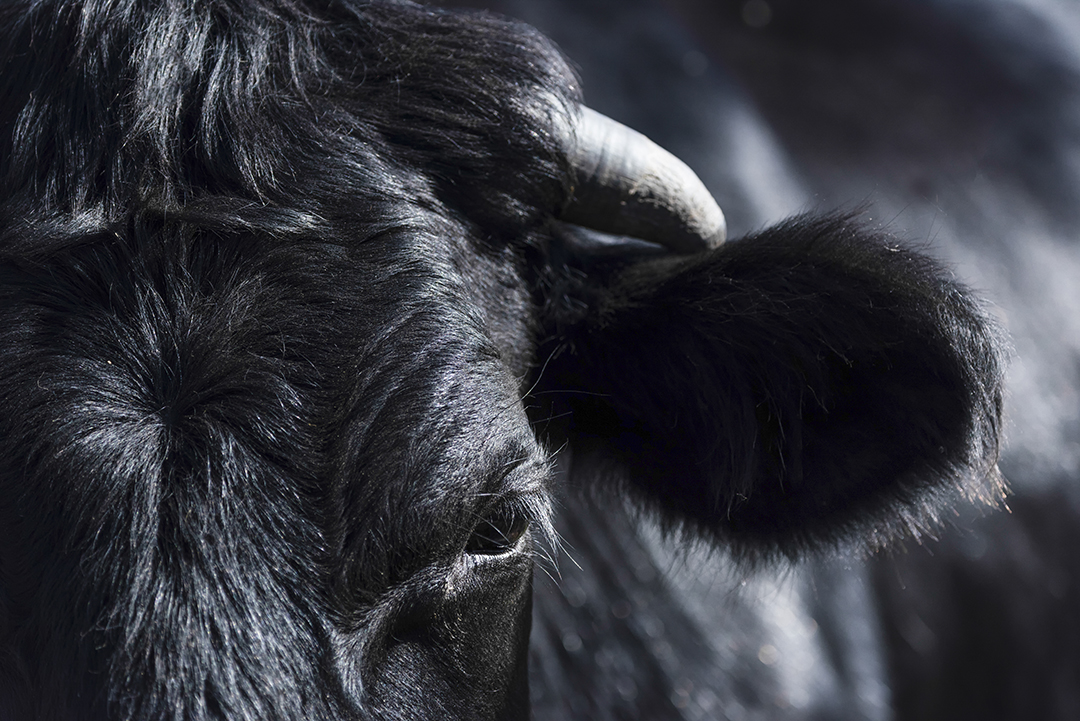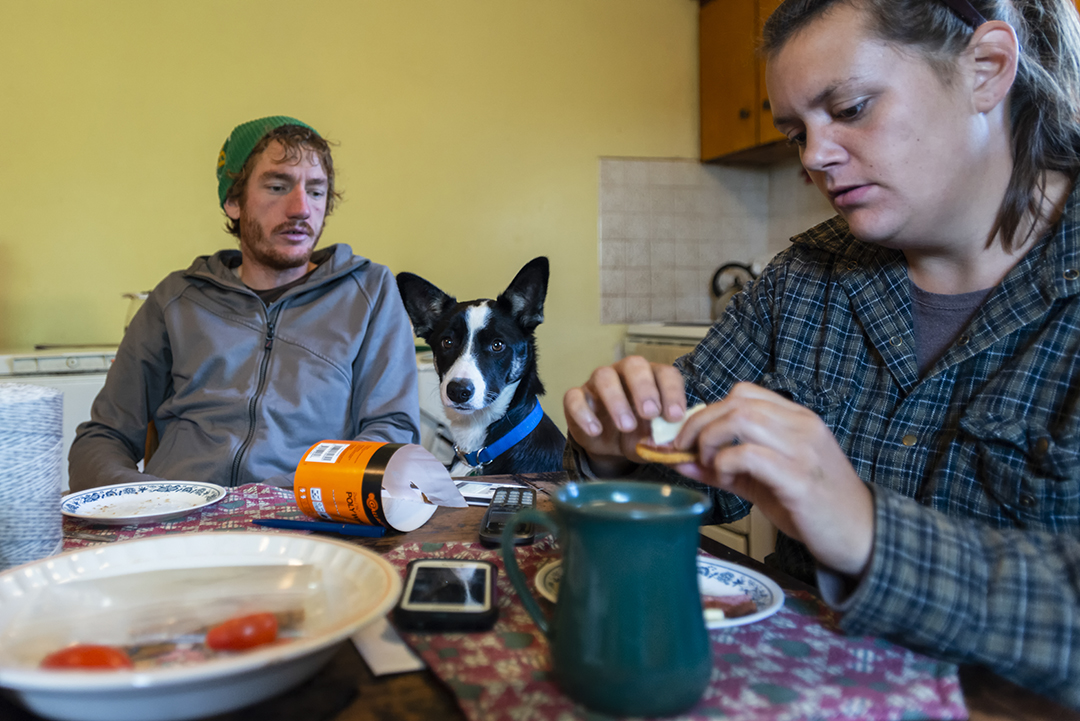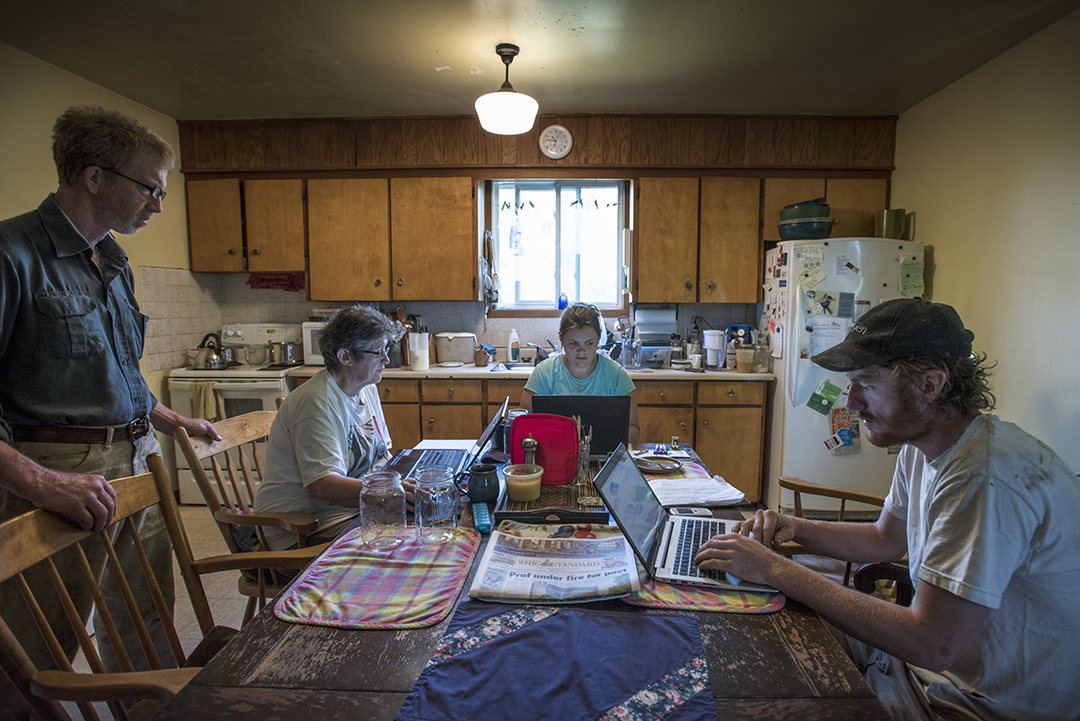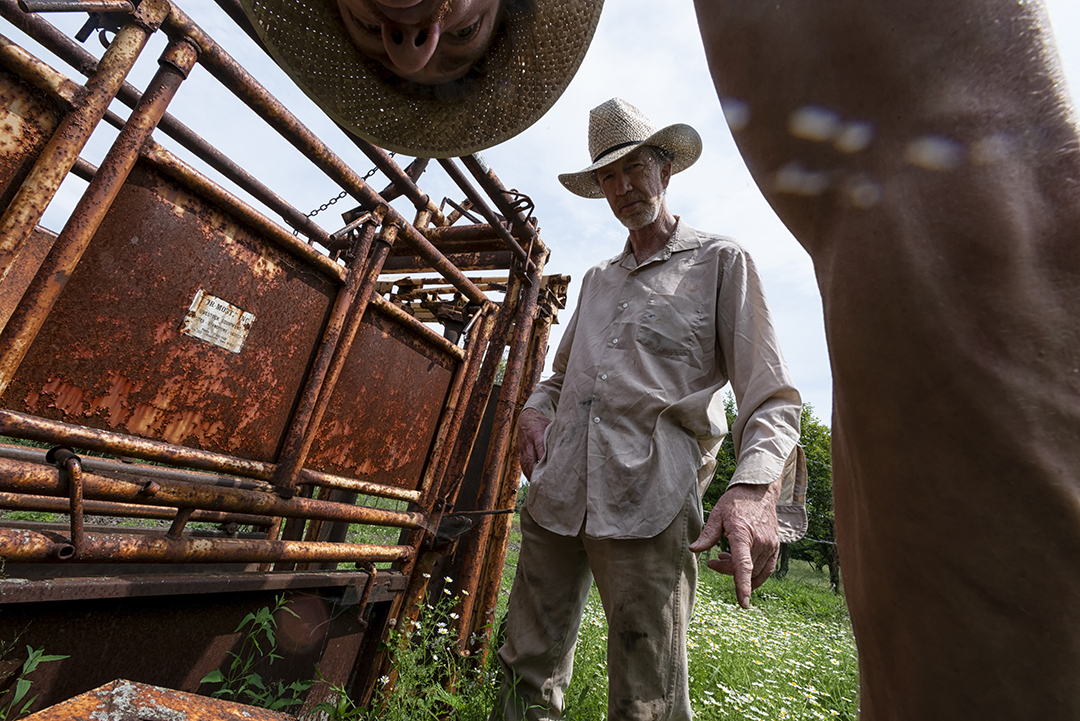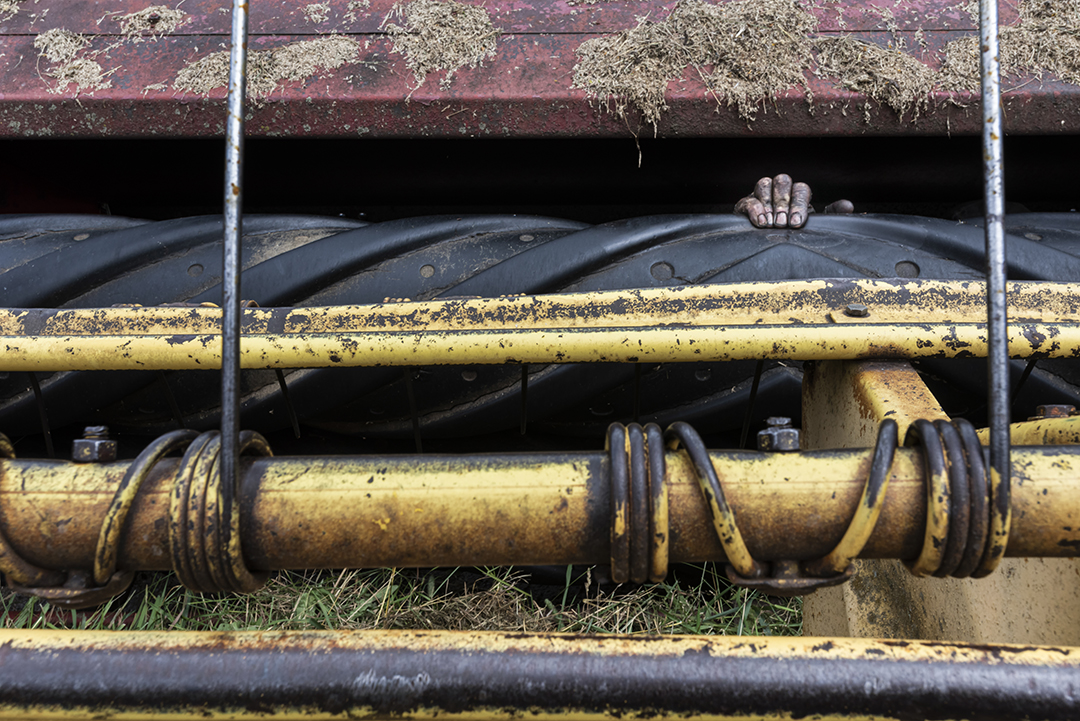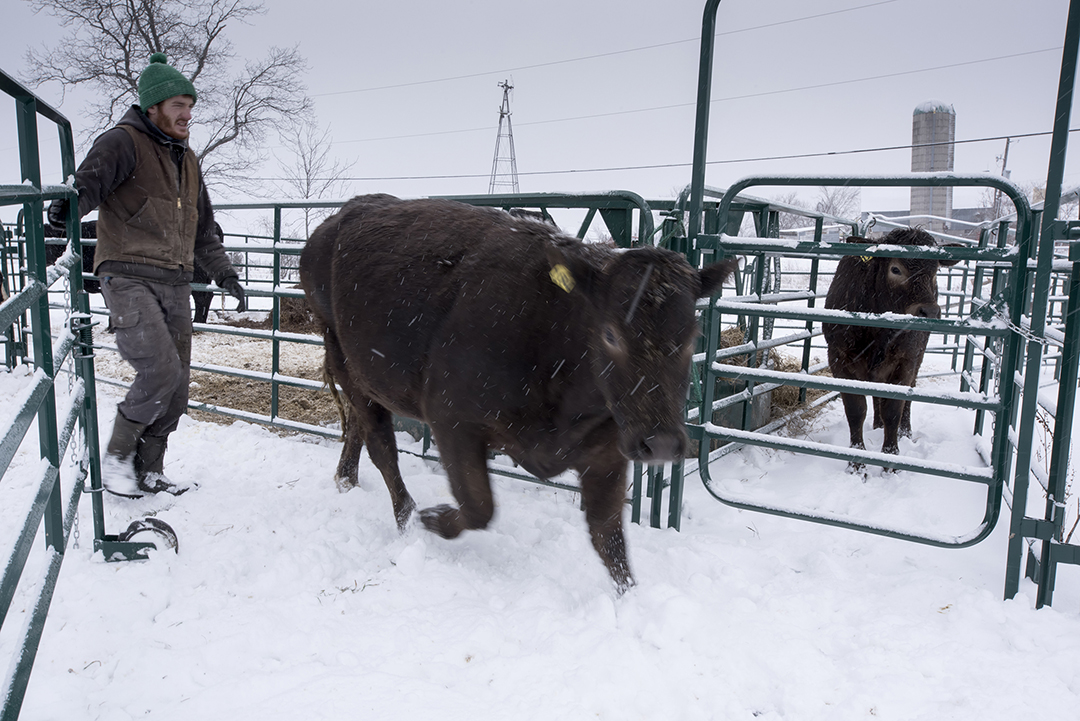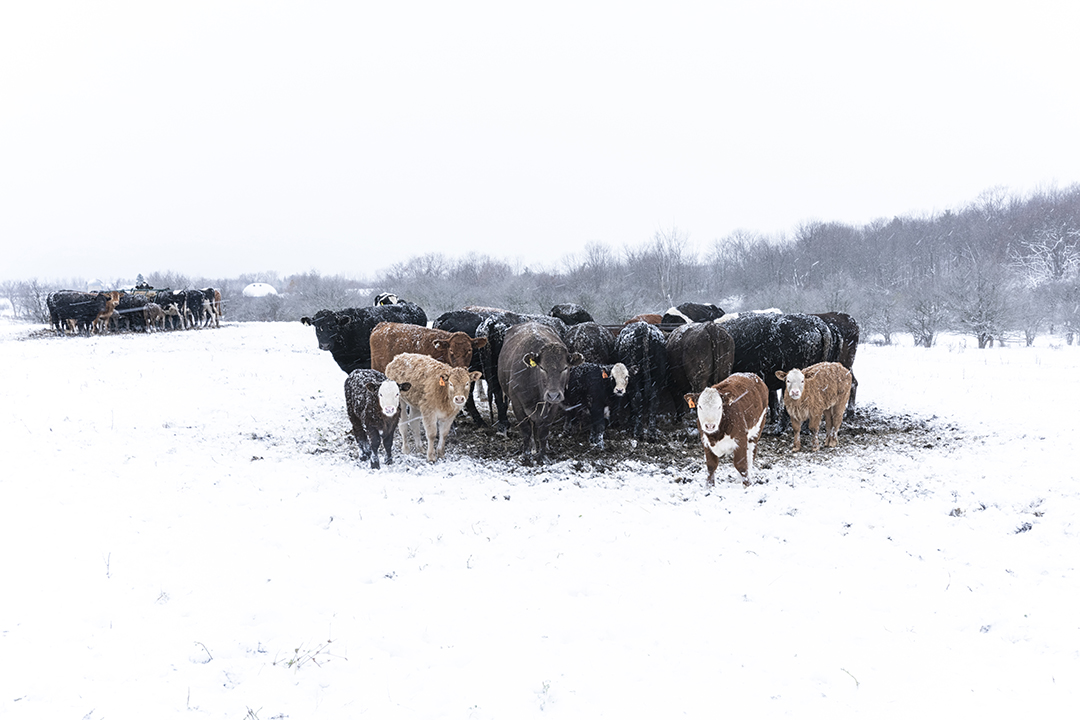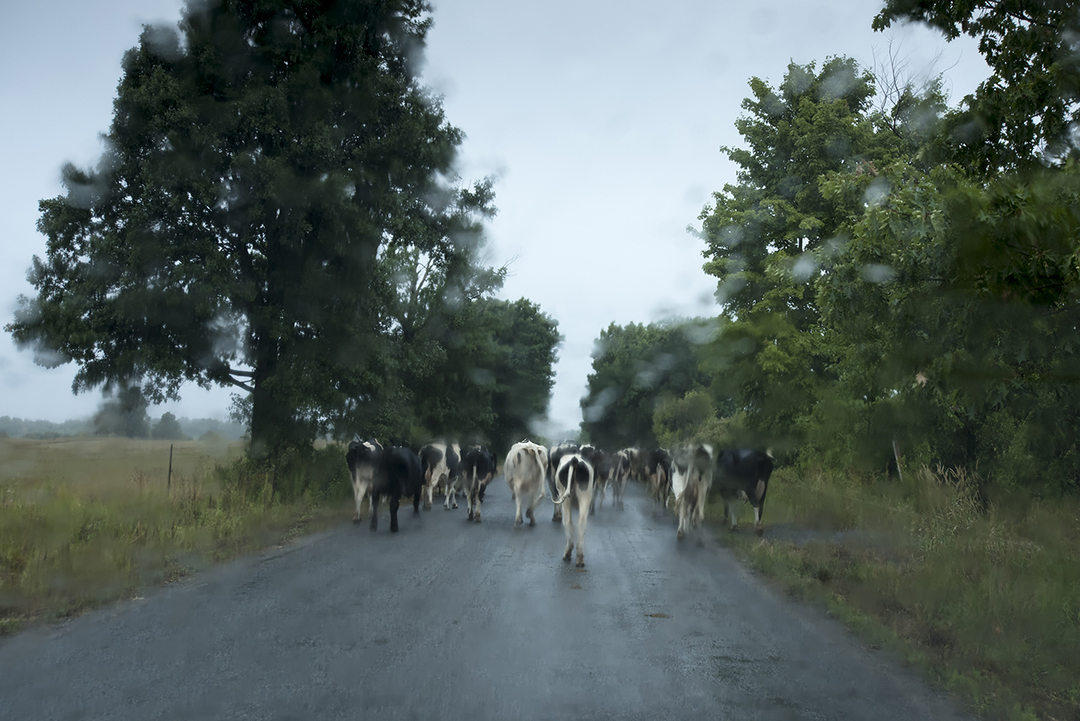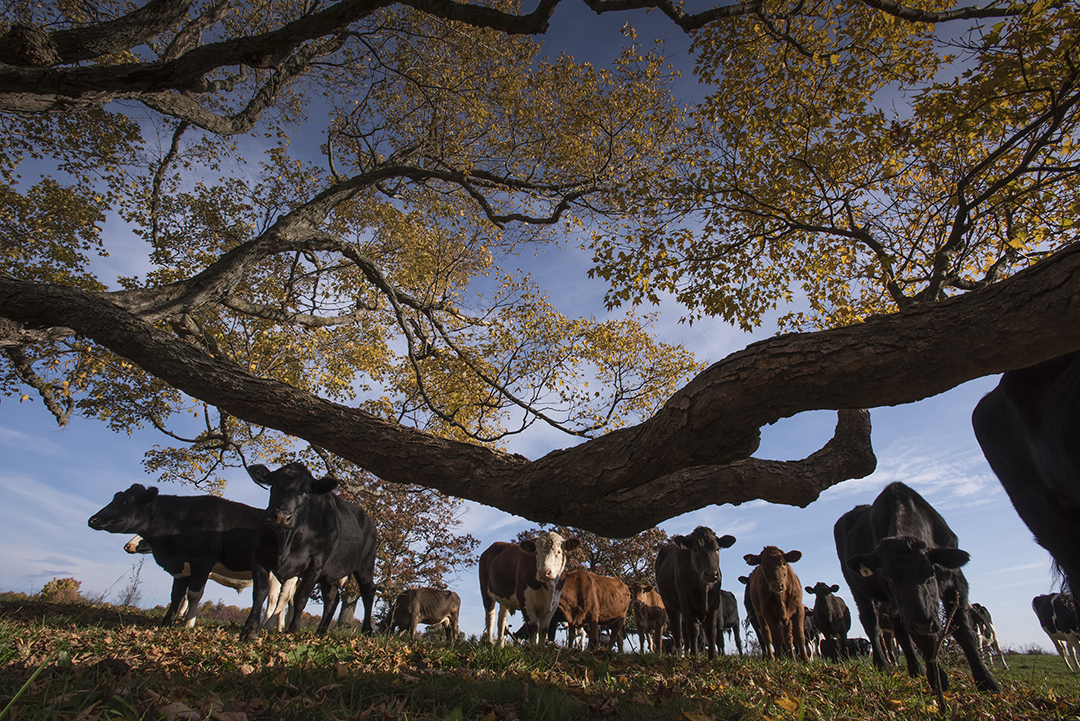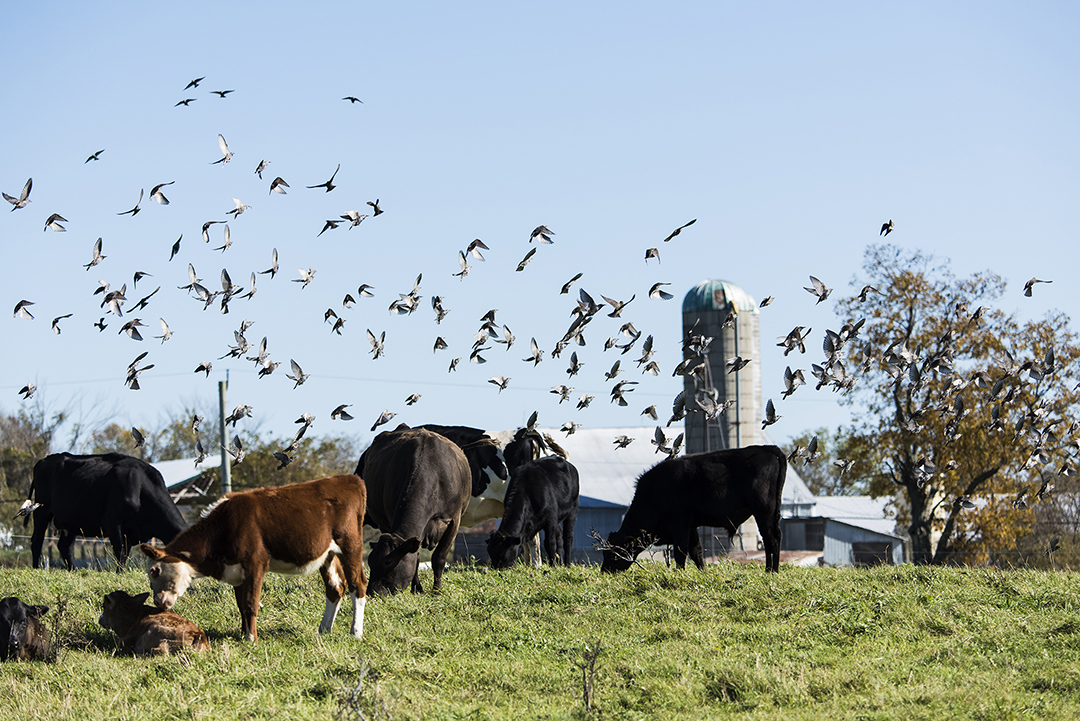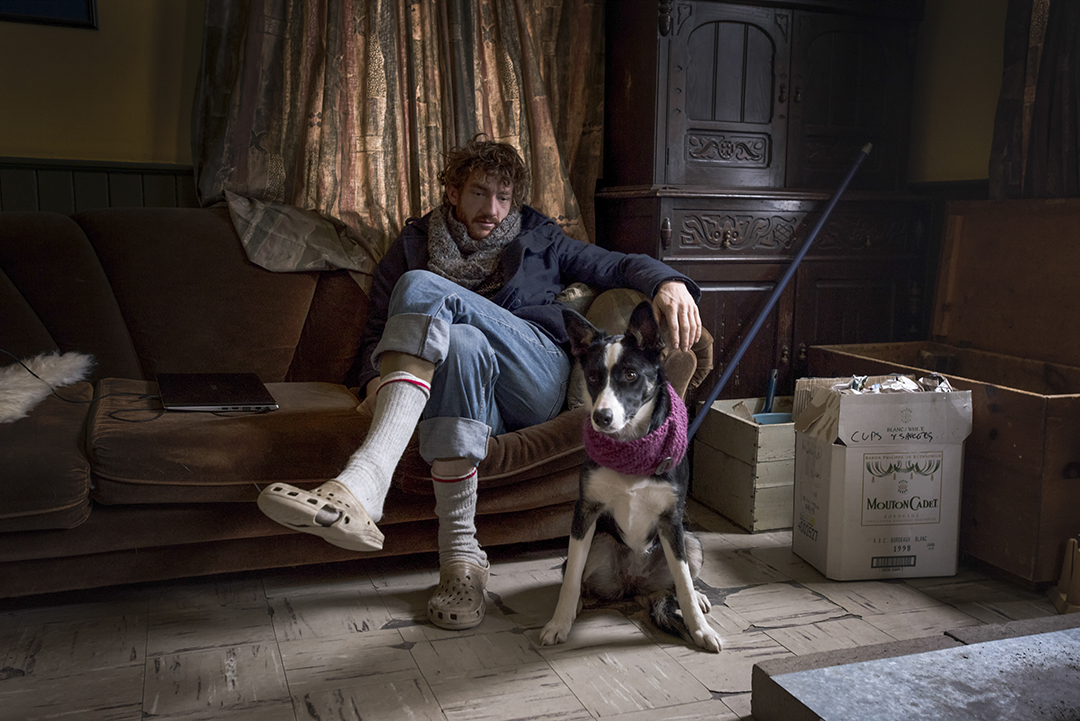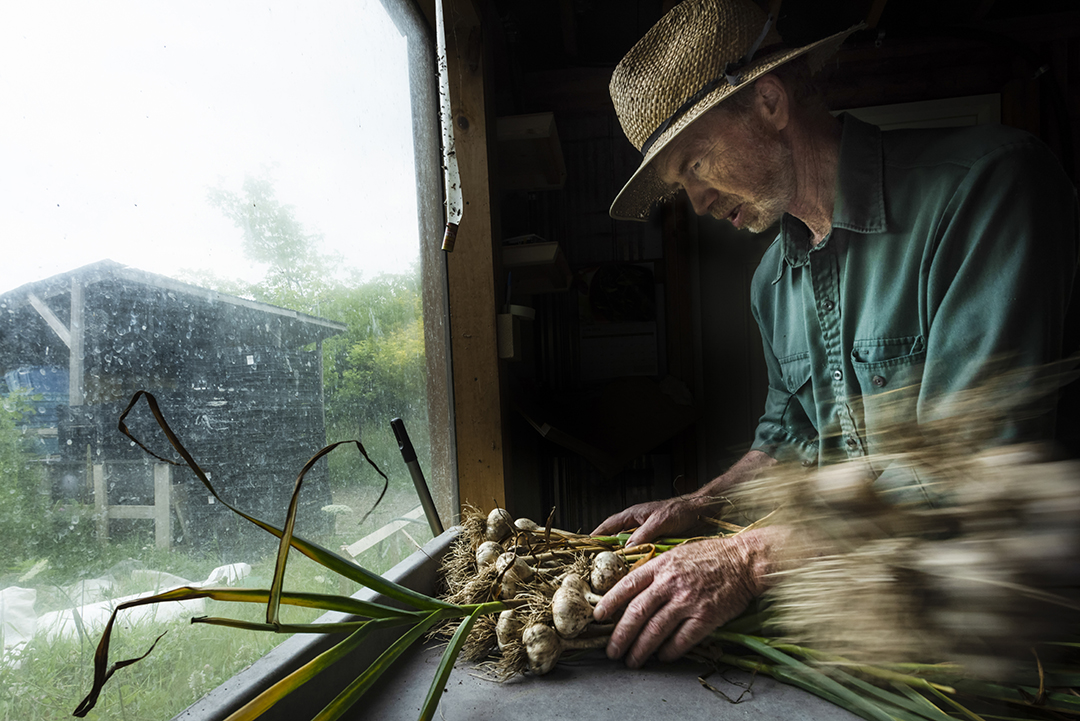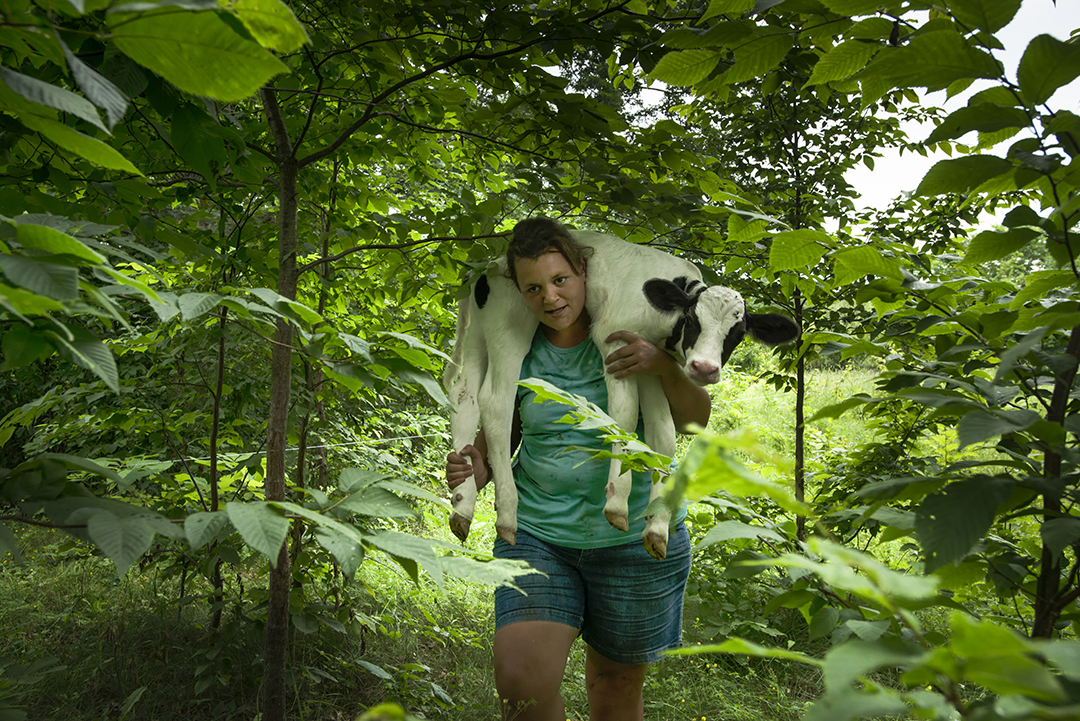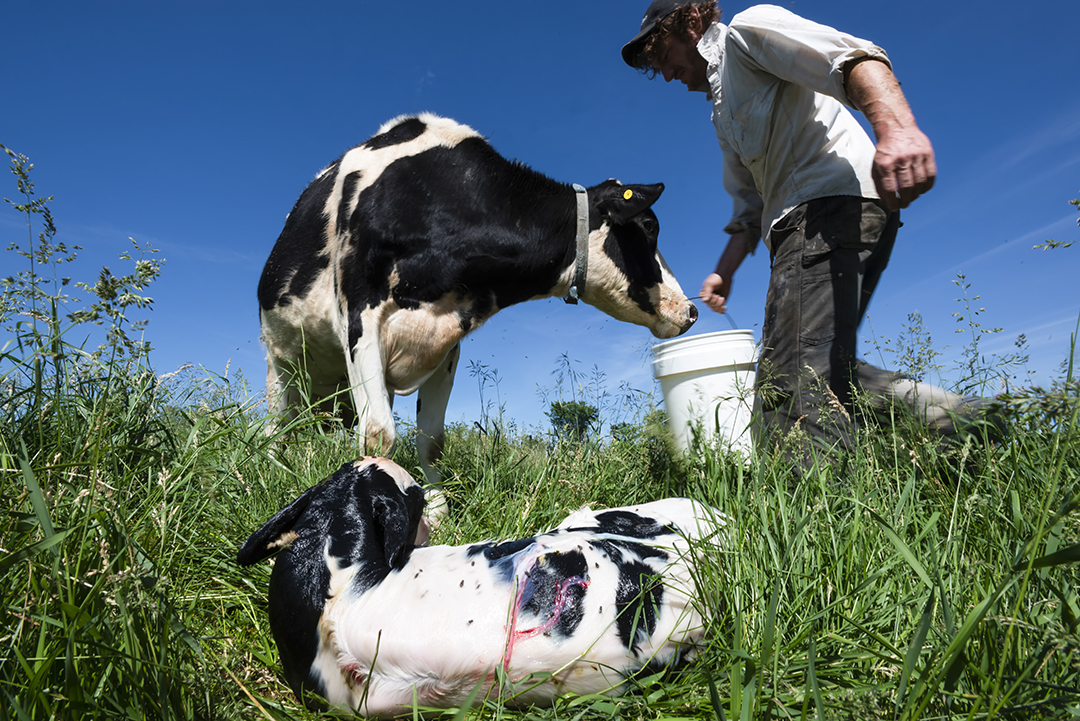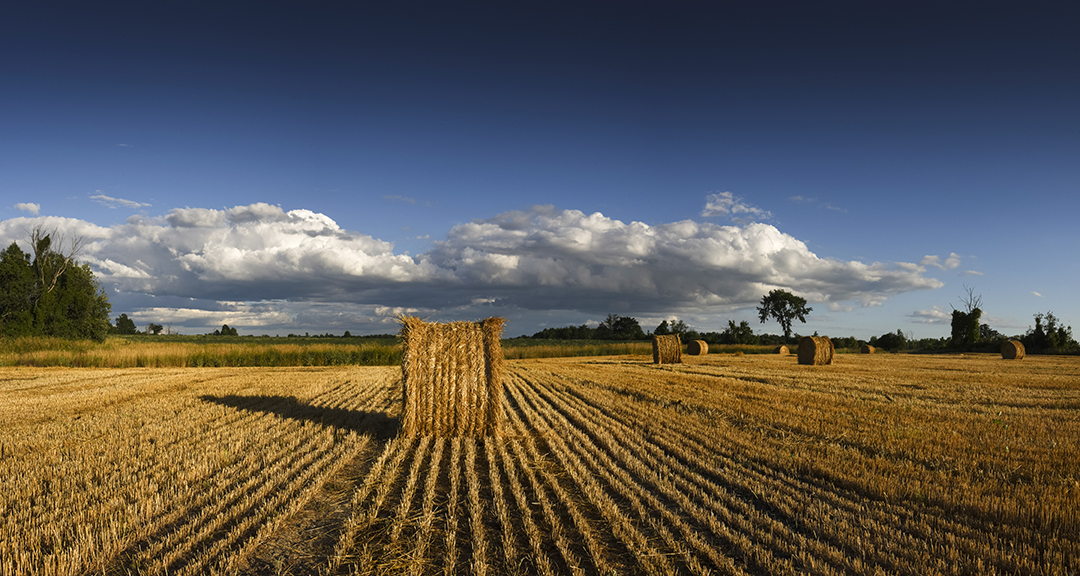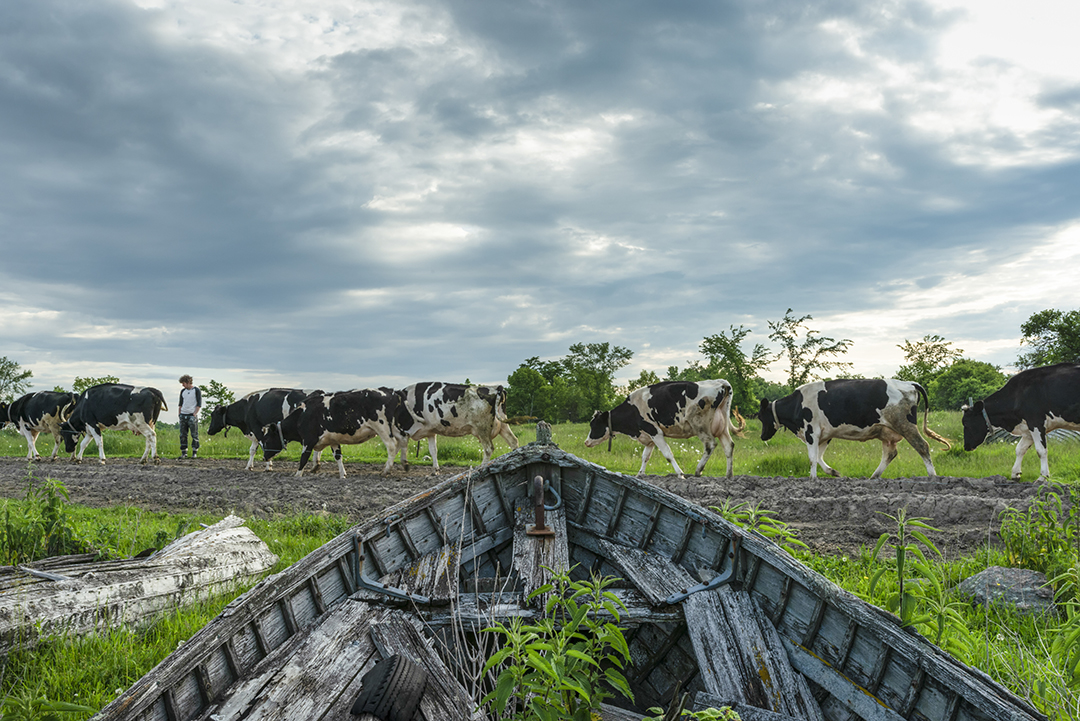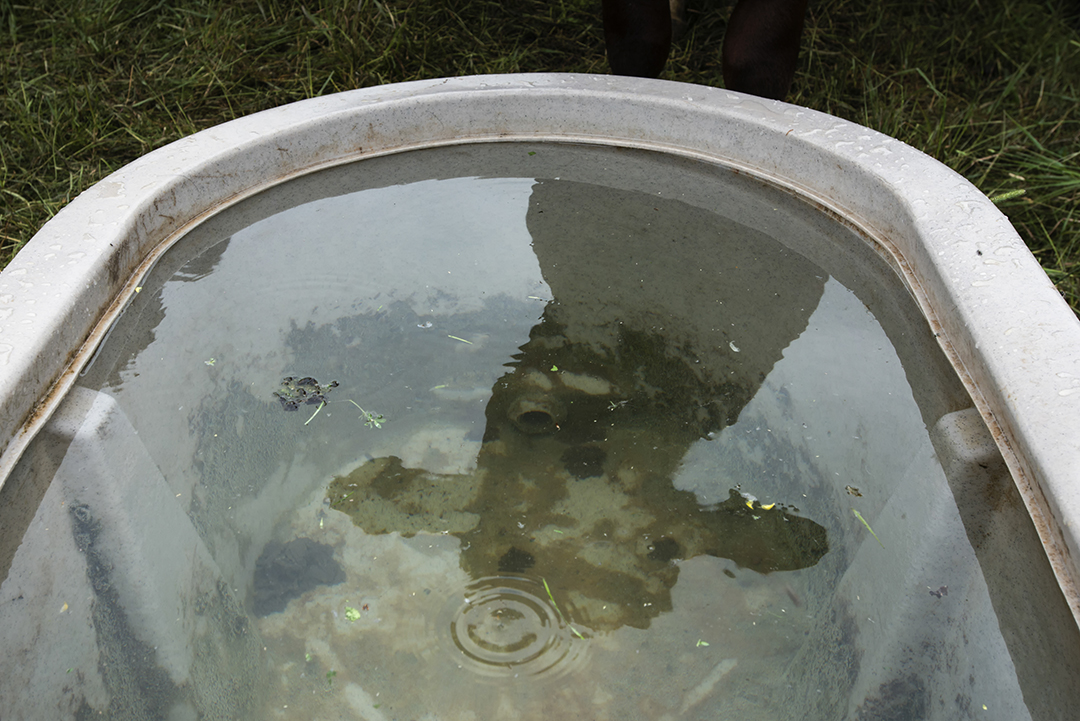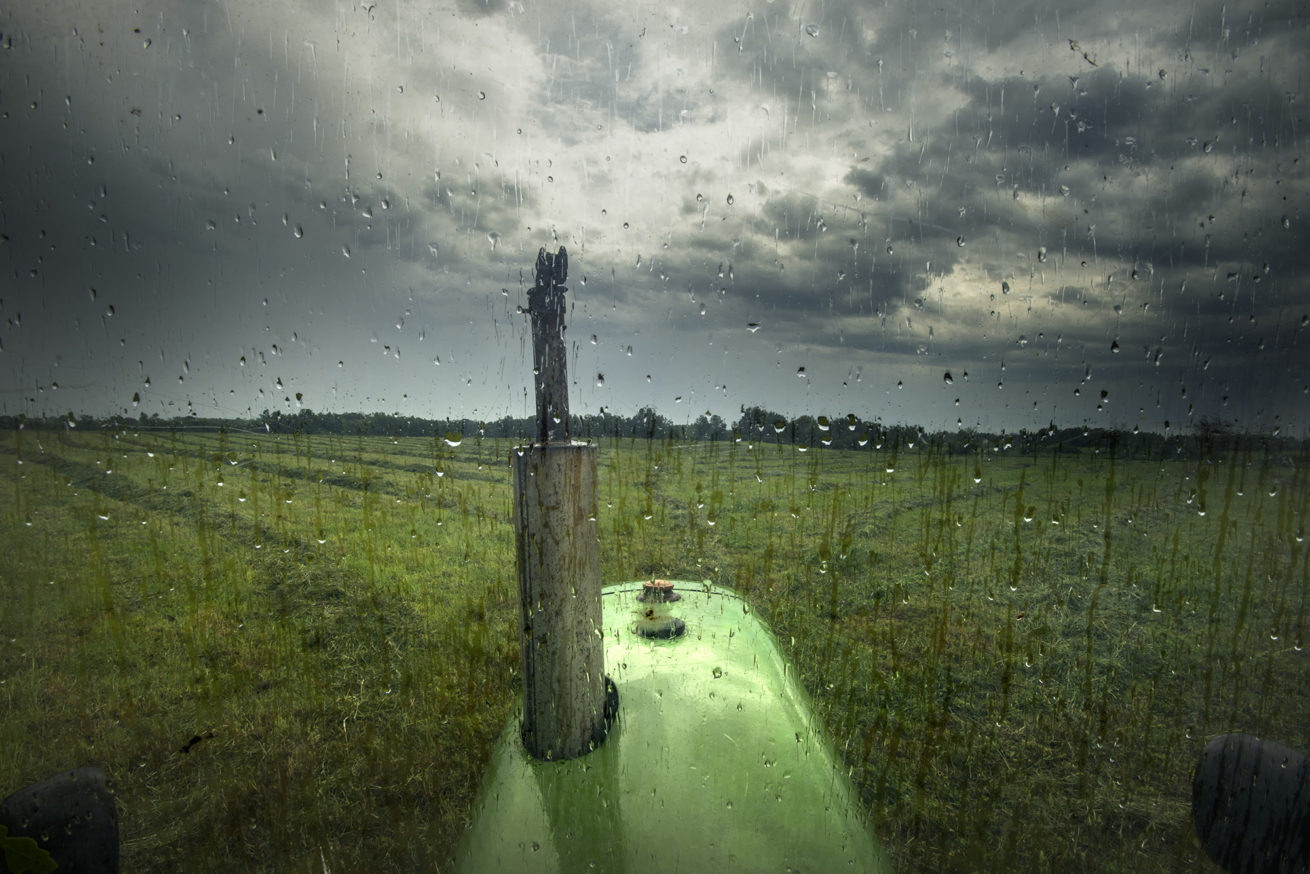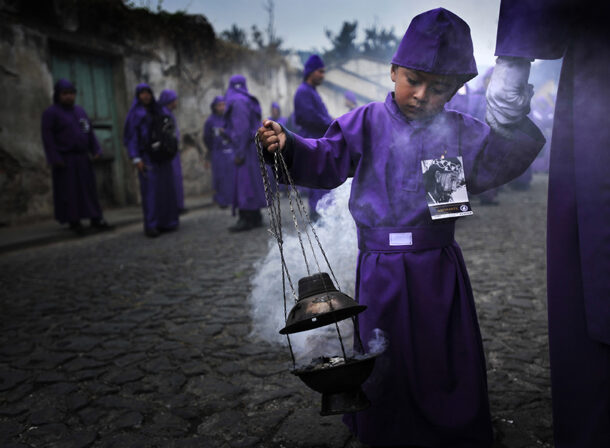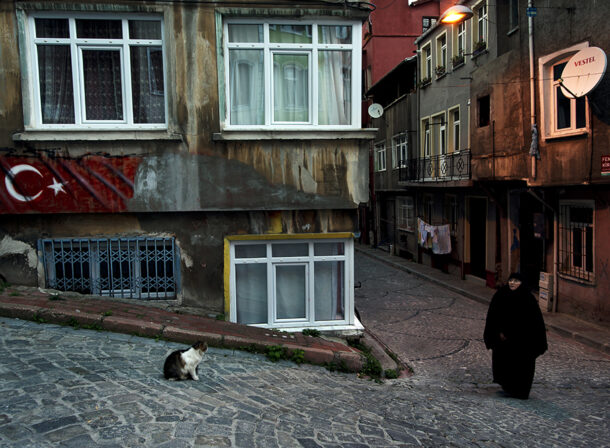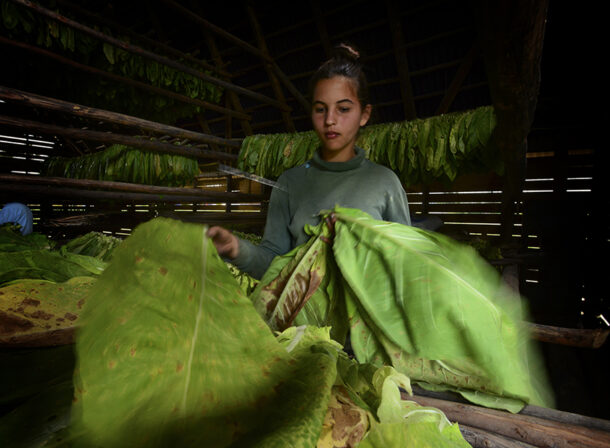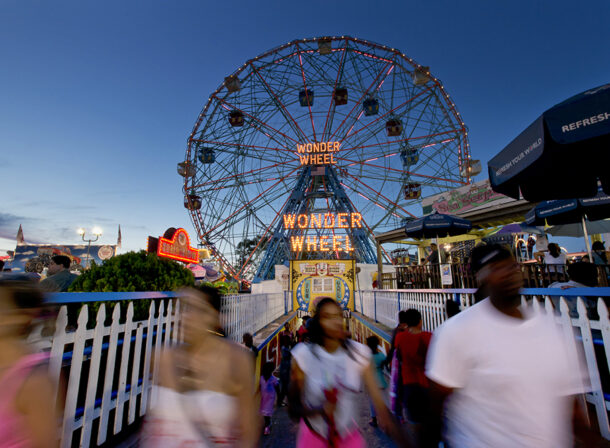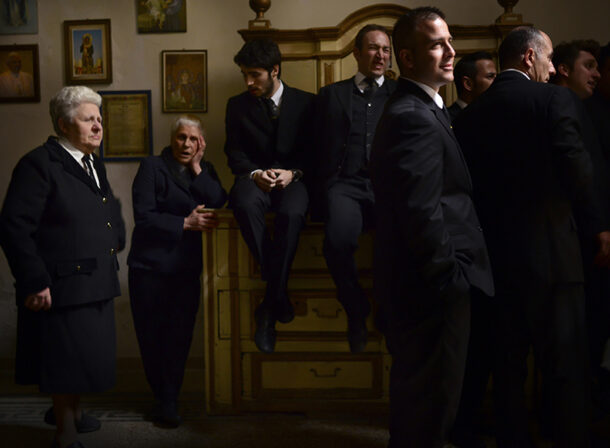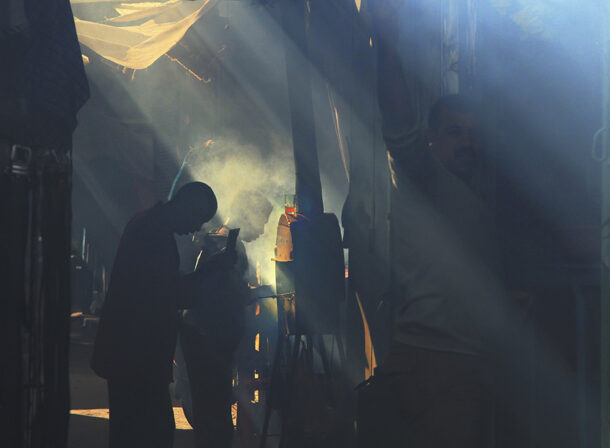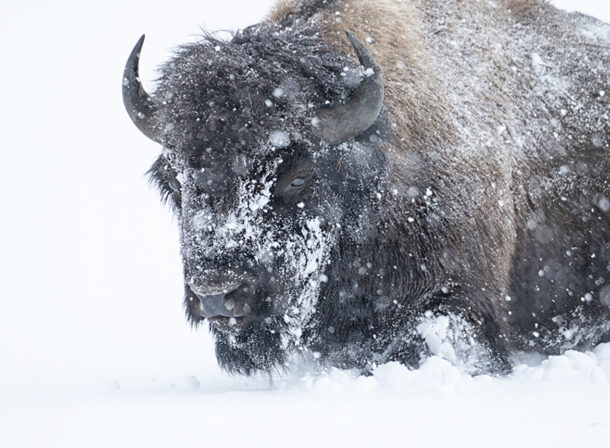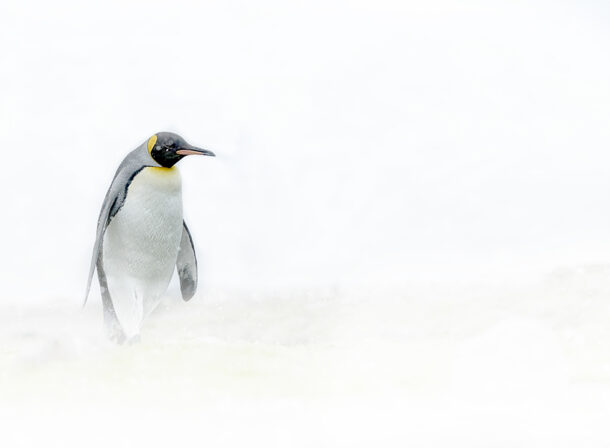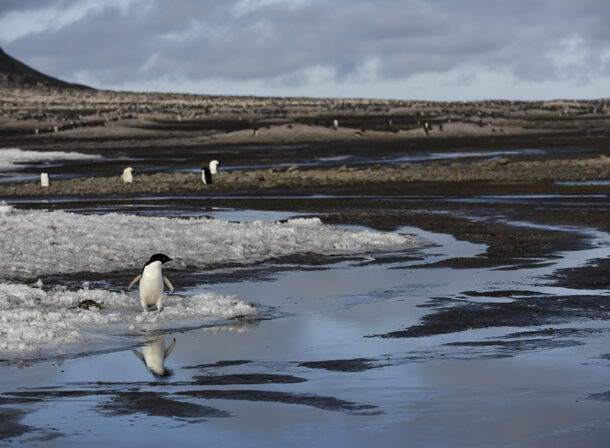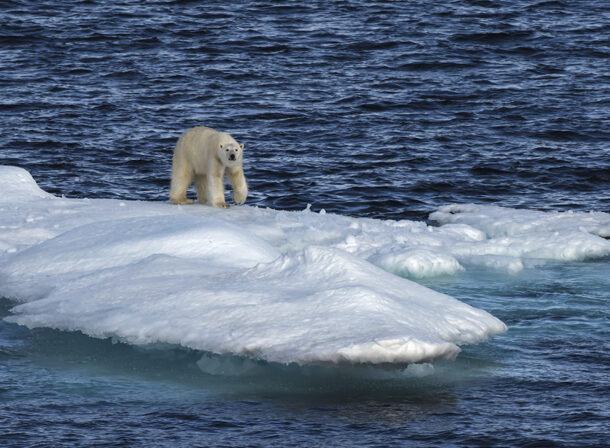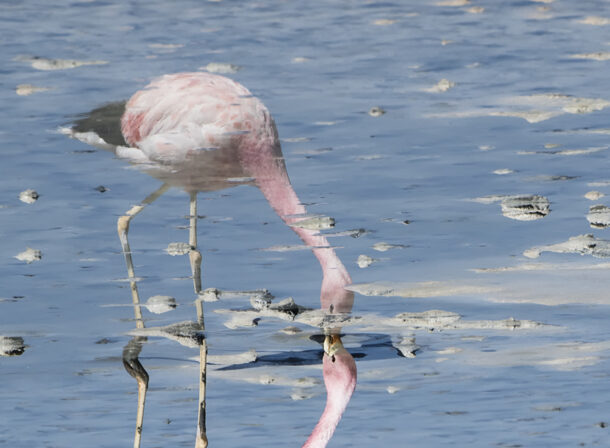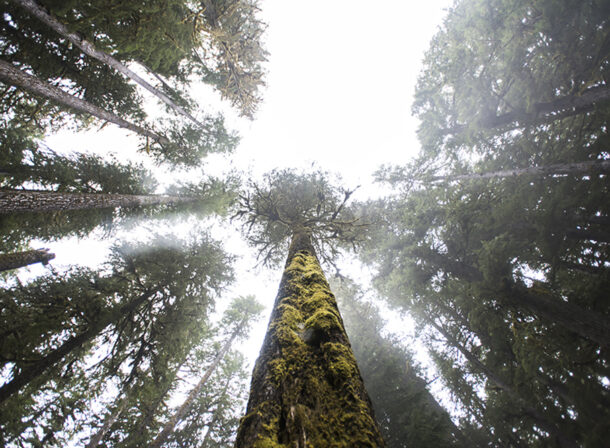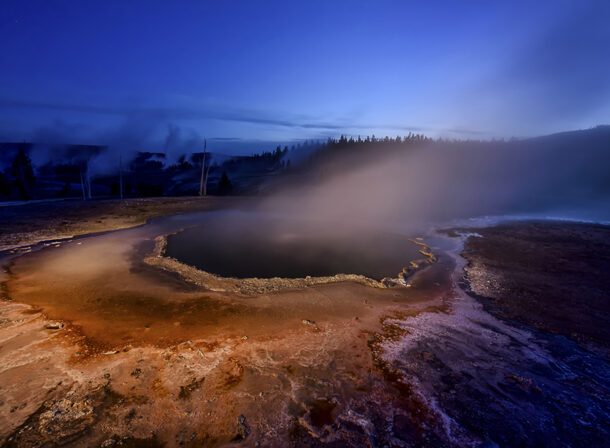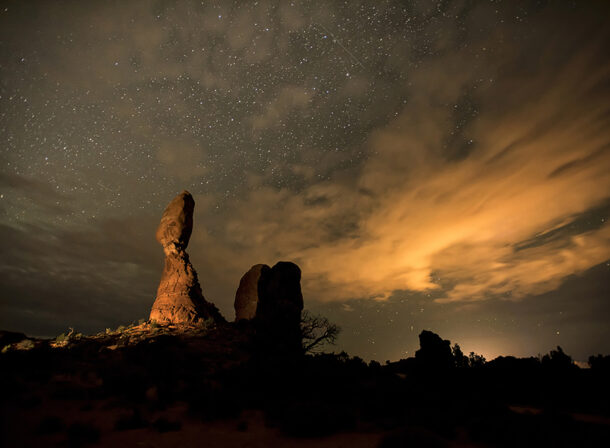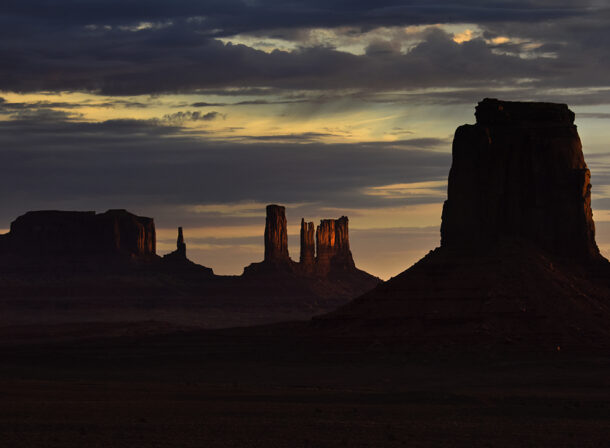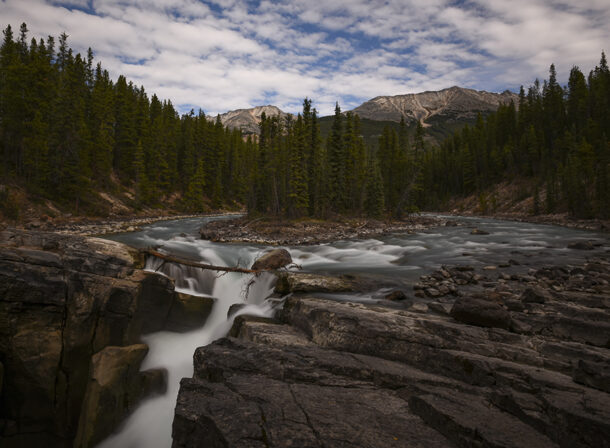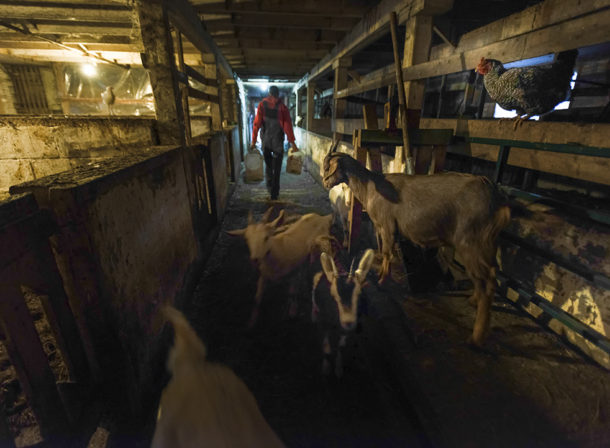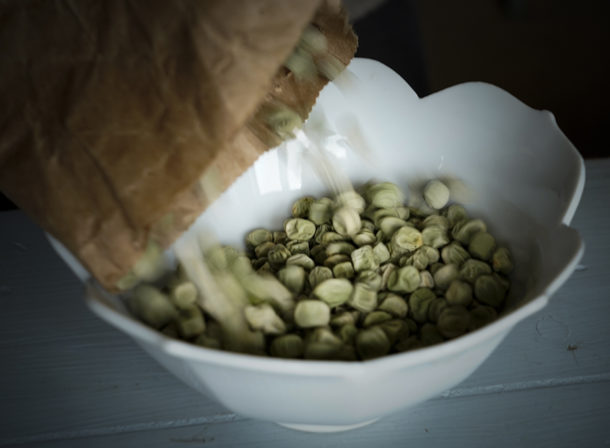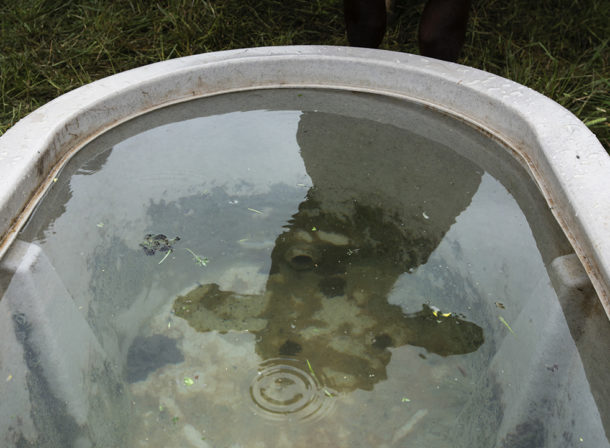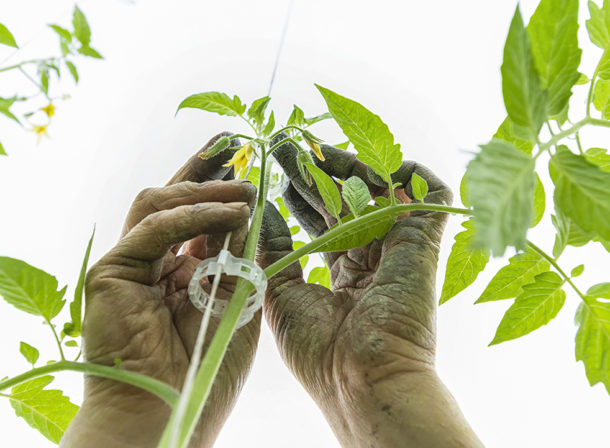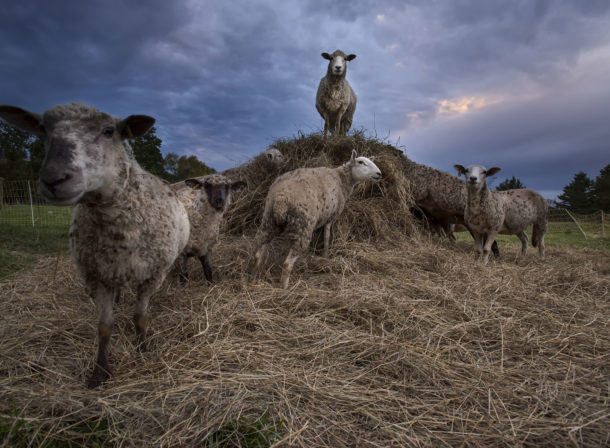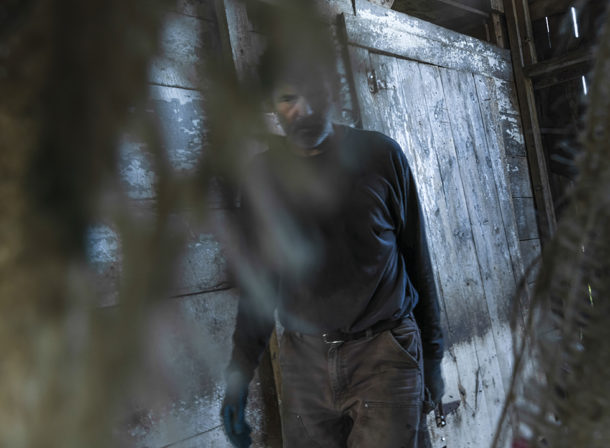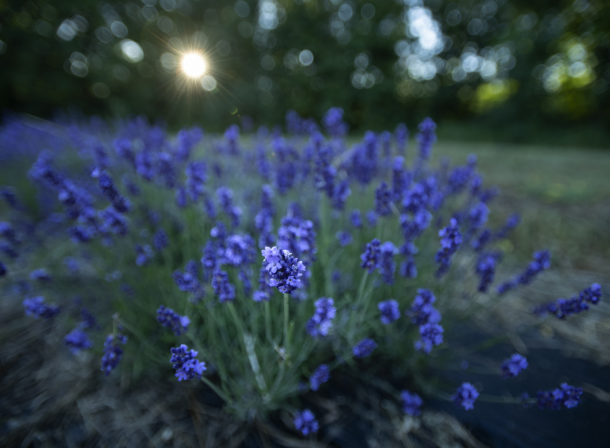“There’s a lot of responsibility in livestock farming,” says Tim Dowling. “You basically have 80 babies to take care of 24 hours a day.”
As a dairy farmer at Doublejay Farm, Tim has a rigorous daily schedule. “Each day, I get up, I make sure that everyone has hay, water, bedding. I milk. When that’s done, three hours later, I take a break. Have some tea. Attend to any random jobs that need to be done.”
“And then in the evening, I do the same thing again.”
Between milking shifts, his work depends on the season. “If it’s summer, I make hay. In the fall, I spread manure. Or I could be fixing equipment, sorting cows, managing books, meeting with my parents.”
Tim farms with his parents Peter and Dianne Dowling, both of whom grew up farming. Peter moved to the Howe Island farm with his parents in 1960. Both Peter and Dianne have been active in the National Farmers Union for many years, and in food and farm social movements.
Like his sister Emily, Tim didn’t want to be a farmer when he was growing up. “It took a while to see the opportunity.” But as Tim became involved in campus activism around food and environmental politics, he started to think of the farm as a way to improve the food system. “I saw that we could do something even better.”
Our society, Tim says, is set up to hide the shortcomings of the dominant food system—its overuse of energy, and the exploitation of the people, land, and animals it requires.
“People aren’t connected to the cost of food,” Tim says. “They can go to a grocery store and just buy cheap food, but there’s not really a link to how that food is being subsidized in various ways. And especially [not to] how the Earth is subsidizing it.”
So for Tim, it’s critical to farm in a way that demonstrates how we can grow food without hurting the planet. Rotational grazing is a key part of that—moving herds of cattle around in a way that maximizes the health and biodiversity of the pastures.
“In the grazing community, there is a principle of trying to mimic nature,” Tim says. “Nature is, in some ways, inherently sustainable or regenerative. Nature has her systems, and if we get as close to them as we can, we can try to make a system that’s sustainable. Not just ecologically, but also in the long run it should make things easier socially.”
In search of an approach that gives him more flexibility, Tim has also been making changes as he takes over the cattle operation from his parents.
“I’ve been transitioning the farm, moving to a beef herd. Going with a beef herd will give me more time. I can use that time to plan better, and to work on the financial side of the enterprise. I think that farms should be producing surplus, and then giving it back to the soil, or the animals, or the farmer, as the case may be.”
Tim hopes that these changes will bring ecological benefits not just for the farm, but for the whole planet. “One thing that’s just starting to be realized is the potential that grasslands have for storing organic matter and carbon. The farming that ‘we’ as a culture have been doing has been taking carbon out of the soil. We need to start putting it back.”
Well-designed rotational grazing systems can suck carbon dioxide out of the air, and combat global warming.
Finding enough time for planning and rest has been a challenge. “Sometimes it just seems like a struggle trying to get everything done that needs to be done.” But Tim still enjoys his work. “There’s always a lot of variety in farming, especially on the small scale.”
“The job that I have, I take daily walks in the woods. Sometimes it does feel like a break, sometimes it’s a beautiful day, and there’s nothing you’d rather do than walking though the pastures and watching the cows graze.”
“Obviously, sometimes it’s drudgery, if it’s raining and muddy. But there are sunny days when it’s great. And with beef cows I can maximize that, by working on sunny days!”
“Cows have a way of inspiring me,” says Tim. “They’re loudmouths. But when you see a beautiful, shiny-coated, rotund beef cow grazing on nice pasture, you want to keep doing that.”


